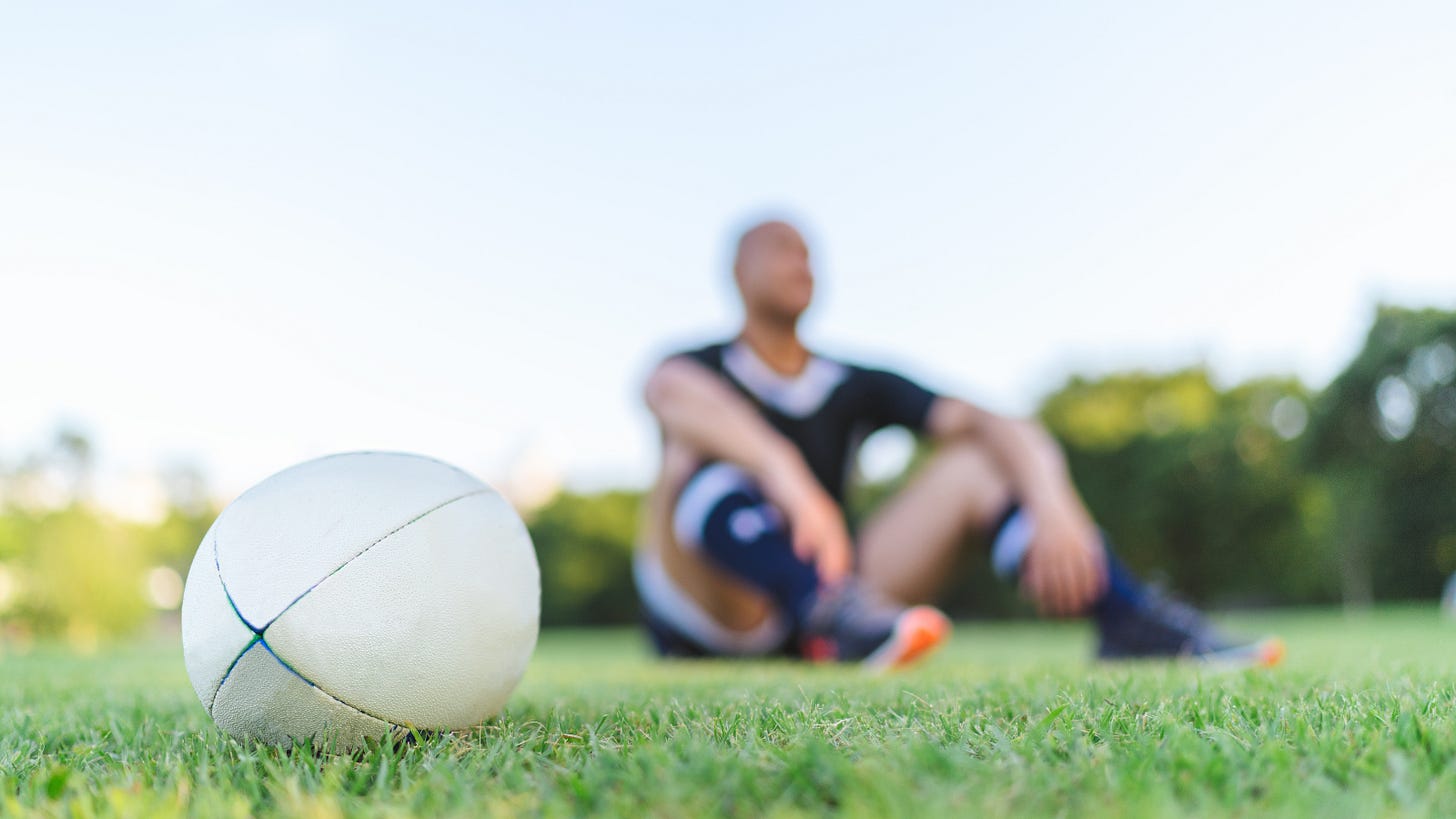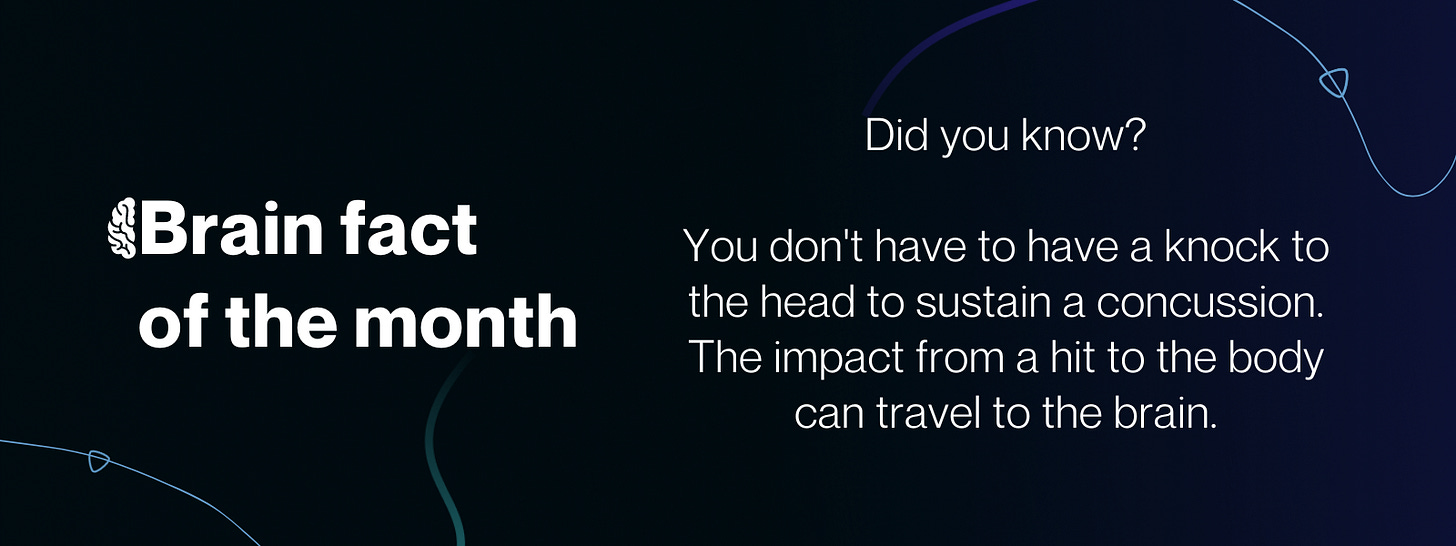Concussion Matters
Enhance your brain health with our monthly Matters of the Mind roundup of news, views, and top tips...
Hi!
Welcome to our very first monthly newsletter. At MYndspan, we’re on a mission to make insights into neuroscience and brain health accessible. We all have mental health, yet understanding what the science says about the brain is incredibly difficult. We want to be your go-to source for understanding what the latest literature says about the brain and what it means for your brain health.
That being said, March is brain injury awareness month, so we thought we’d kick of our newsletter with an area of brain health we’re particularly passionate about and one that affects a huge amount of people – concussion. Concussion, or mild traumatic brain injury, is the most common type of brain injury. This month we’re delving into concussion – exploring its impact on the brain and providing you tips on how your lifestyle measures, like diet can help with recovery.
Head On: Rugby, Dementia, and Me
Nowhere is the consequences of concussion more prominent than in the world of contact sports. While it is incredibly difficult to share personal stories of the struggles associated with mental health, many benefit from hearing about them. In this BBC documentary Stephen Thompson MBE, England's 2003 Rugby World Cup-winning hooker opens up about his life since being diagnosed with early-onset dementia in 2020 and probable CTE. A neurodegenerative condition linked to repetitive trauma, like concussions.
🧠 Brain tips and tricks
Concussion Recovery: Three ways diet can help with recovery
Protein, protein, protein – Research has discovered that branched-chain amino acids (BCAAs) – which are the building blocks of proteins – may improve cognitive recovery following concussion
Eat foods rich in omega-3s – Omega-3s have been linked to brain changes indicative of improved cognitive recovery
Stay hydrated – Concussion aside, hydration is important for overall health and well-being. Research suggests there may be a link between dehydration and an increased risk of concussion
🗞 Brain health in the news
Scottish footballers banned from heading balls before and after matches -
The SFA’s guidance is a big step forward in making brain health more accessible and protecting player safety
What does concussion do to our brain? - This paper provides an overview of the basic science of concussion, looking at where research is now and where it is going
How tech can identify the ‘invisible injuries’ of the brain – NR Times spoke to our CSO Dr Ben Dunkley, on the progress and potential of MEG technology for concussion management
🎧 What to listen to
Head Noise Podcast – Host James Graham sits down with former Roosters captain Boyd Cordner, to talk about their experiences with concussion. James also discusses his brain scan results with Dr. Alan Pearce, neurophysiologist, concussion researcher, and a member of our SAB
MYndspan does not provide medical advice. The content of this newsletter is not intended to substitute professional medical advice and is not to be used for the diagnosis, cure, management, prevention, or treatment of any disease or condition.
Don’t forget to subscribe, follow us on LinkedIn and Twitter, and email us if you have any brain questions, stories, or news that you’d like to share…







well written, very informative, look forward to learning about the many causes of brain injury and tips on maintaining brain health, especially for seniors.
Daily exercise for seniors very important. Most seniors forget hydration. Balance exercises helps prevent falls. Ordinary means with no costs makes safety easy for seniors. Falling with disastrous concussion results is a disaster for all ages.